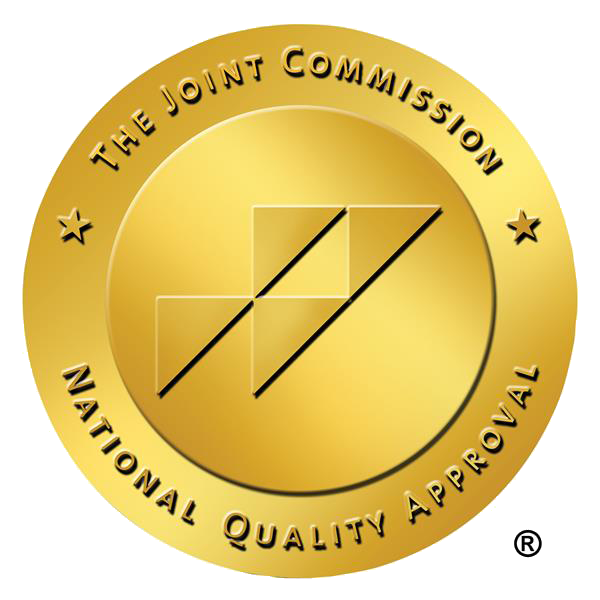Virtual Programs
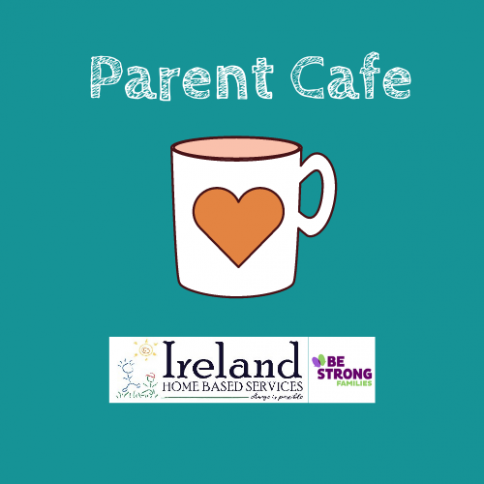
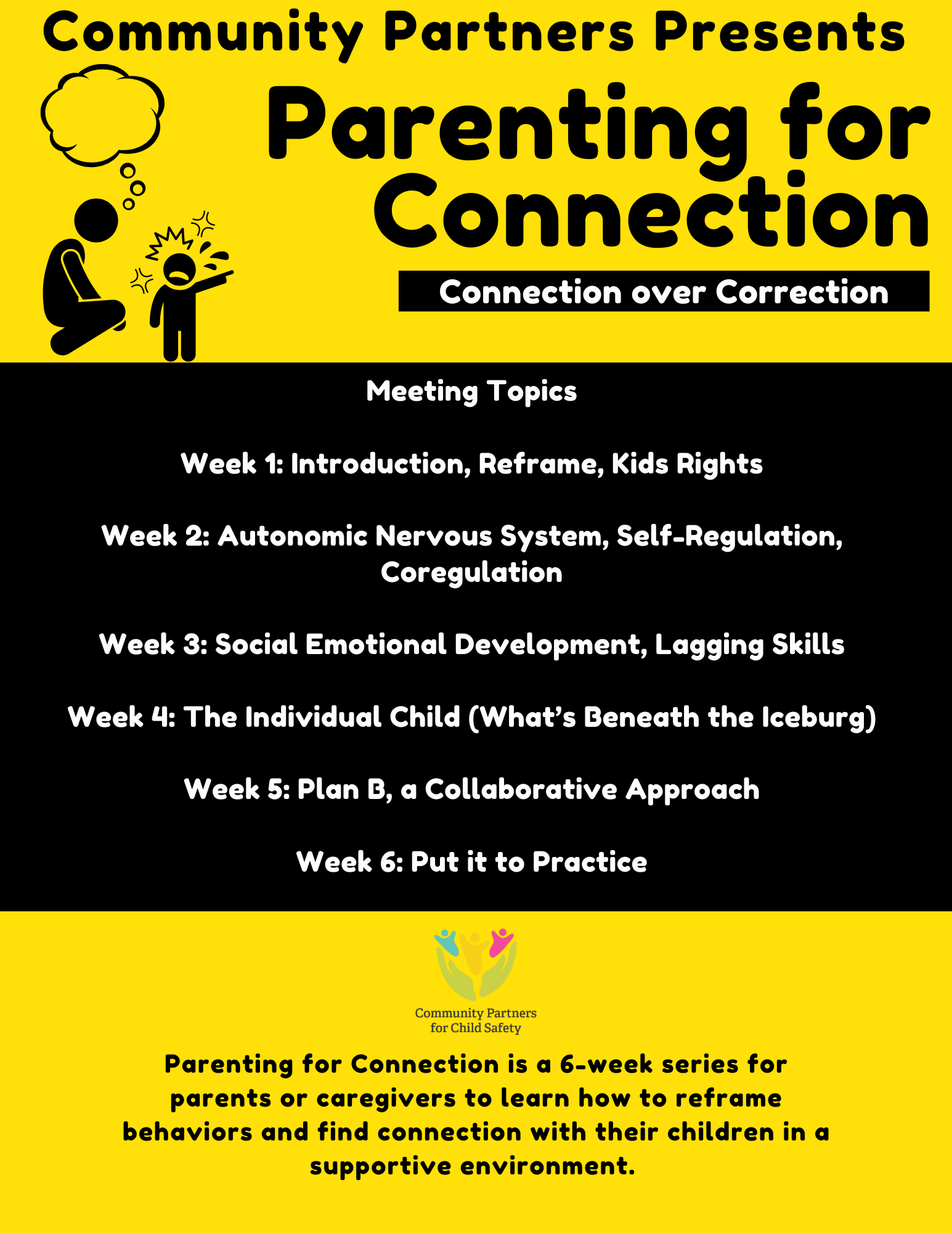
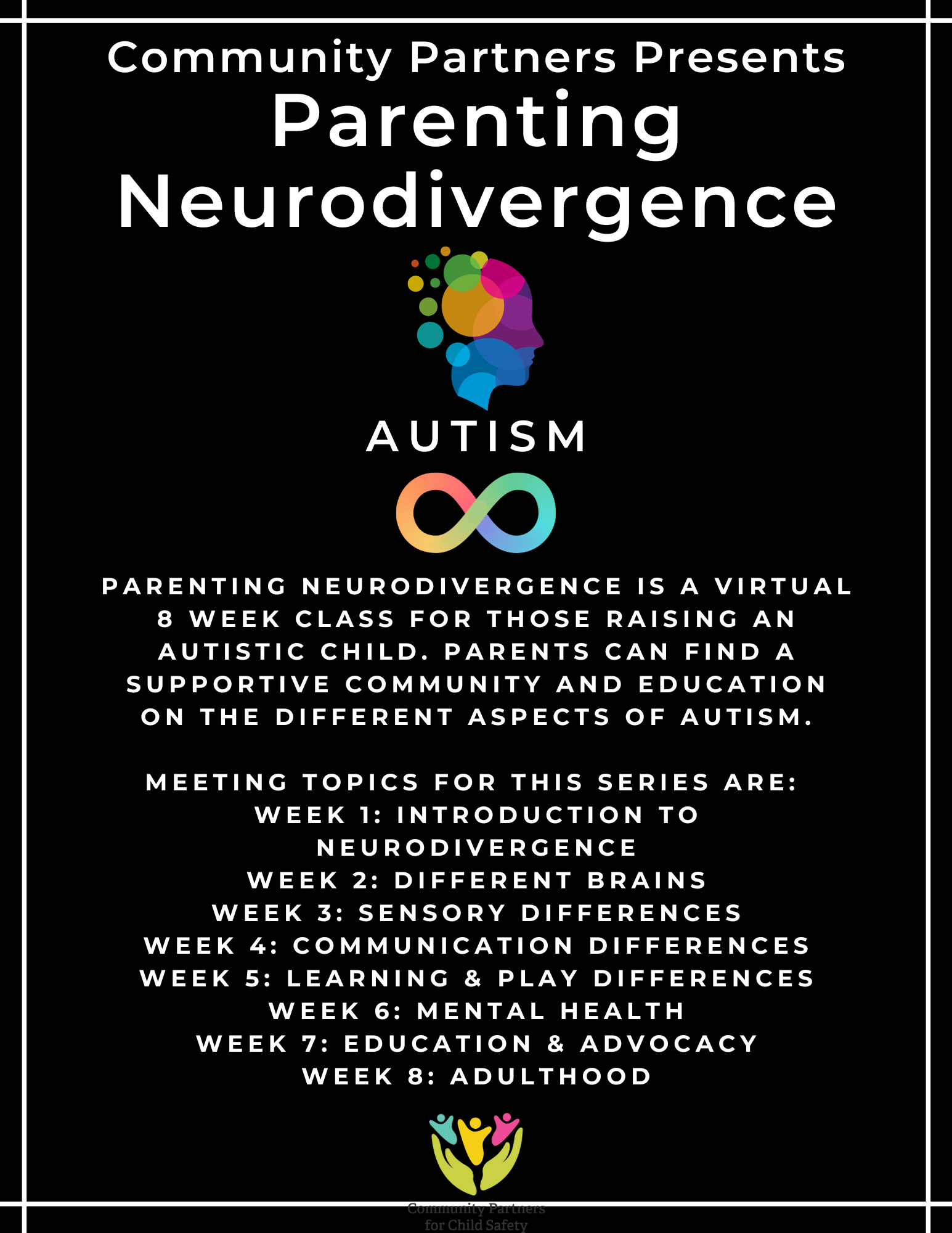
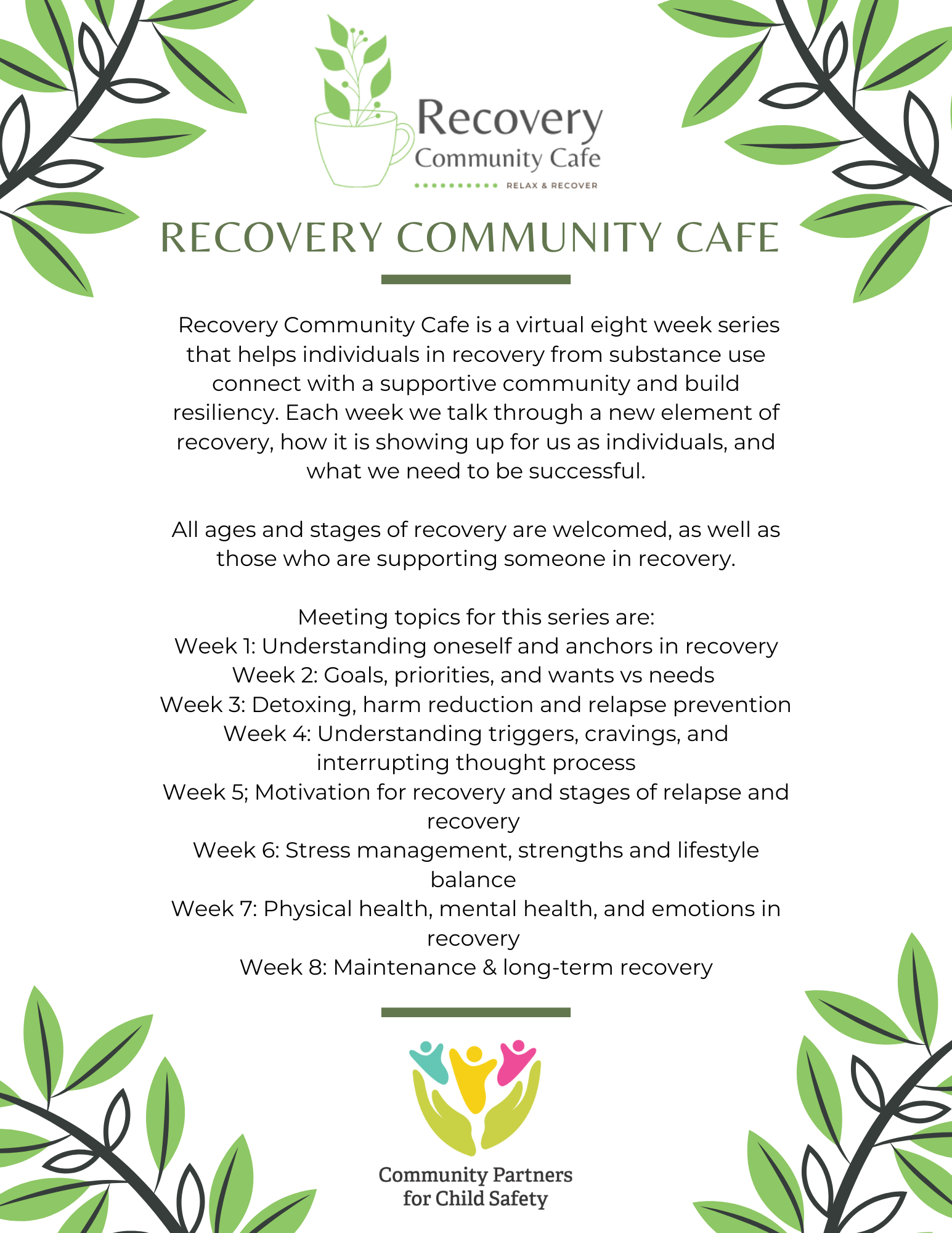
To register for any of the above programs, please visit the Facebook links below or contact Deborah Cooper (dcooper@ihbs.us or 812-483-8369 )
Link to Facebook events for Parenting Programs:
Ireland Home Based Services Parent Cafe | Facebook
Link to Facebook events for Recovery Community Cafe:
Ireland Home Based Services Recovery Community Cafe | Facebook
These programs are available to any one in the state of Indiana and do not require you to sign up for any case work services.
Parent Cafe
What is Parent Café?
Parent Café is a program from Be Strong Families. Cafes offer an opportunity to connect with other parents in a fun & judgement free environment. During a Cafe we focus on peer to peer learning, deep reflection, and building Protective Factors.
Who May Attend?
We welcome parents from every background. That includes biological parents, foster parents (Credit provided!), grandparents, and caregivers. We also welcome service providers, educators, and anyone who works with children and families to join the conversation. Parent Café is an adult-focused event, we ask that you attend distraction-free if at all possible!
Parenting Neurodivergence: Autism
Week 1: Introduction to Neurodivergence
The series will begin with a brief introduction to concepts and vocabulary. We will then look at the definition of autism and the various ways in which traits are expressed. Finally, we will approach talking to your child about their diagnosis.
Week 2: Different Brains
This week we take a look at some of the differing formation and function of the autistic brain. We'll learn about the impact of struggles with executive functioning skills. We will end with a lesson on the "Be With Attitudes" to strengthen the time with your child.
Week 3: Sensory Differences
Sensory differences are a major part of understanding autism. We will discuss ways to accommodate and will take a close look at sensory issues surrounding food. We will create a sensory profile to aid in accommodation.
Week 4: Communication Differences
There are many communication differences in autism. Some have been misunderstood. Learn about language development and empathy this week. We will reframe autism using a strengths based approach.
Week 5: Learning & Play Differences
This week will address co-occurring learning disabilities, monotropism and how it affects interests and attention. Finally, a look at differences in autistic play and how to engage with your child at their level.
Week 6: Mental Health
Did you know being autistic in a neurotypical world can be traumatic? This week we look at the mental health needs of your child as they mature and will look at the different methods that are regulating for autistic minds and bodies.
Week 7: Education & Advocacy
One of the more difficult aspects of parenting an autistic child comes in their education. Navigating the world of 504s, IEPs, and needed accommodations takes a strong advocate and it will likely be you, the parent that needs to be that advocate.
Week 8: Adulthood
Our final week will include navigating disability, independence, and level of needed support in adulthood as we prepare for the realities of autism in adulthood.
Parenting for Connection
Week 1: Introduction, Reframe, Kids Rights
Behaviors can be interpreted in many ways, what lens you use can benefit outcomes for your child
Week 2: Autonomic Nervous System, Self-Regulation, Coregulation
Both you and your child are operating under a nervous system, let’s learn how to regulate ourselves and use those skills to help our children regulate as well.
Week 3: Social Emotional Development, Lagging Skills
Skills can only be learned when your child has a good foundation. Let’s figure out how to build a solid foundation and look at skills that may be lagging (but can be learned!)
Week 4: The Individual Child (What’s Beneath the Iceburg)
Your child is unique and so are the reasons for their behaviors. Let’s do a little digging into your child’s why.
Week 5: Plan B, a Collaborative Approach
There are many ways to address behaviors, we will focus on Dr. Ross Greene’s collaborative approach and learn how to include our children in the problem solving process.
Week 6: Put it to Practice
The final week, we will practice the skills we are learning
Recovery Community Cafe
Week 1: Understanding oneself and anchors in recovery
You play an important role in the recovery process, and we will work to determine who you are in that role. We will also look at anchors in recovery and how they are beneficial in maintaining sobriety.
Week 2: Goals, priorities, and wants vs needs
In recovery, your goals, priorities, wants, and needs will change from what they were in active addiction. This week we will utilize Maslow’s hierarchy of needs to differentiate between wants and needs.
Week 3: Detoxing, harm reduction and relapse prevention
Detoxing and harm reduction both serve a purpose. We will look at their roles in addiction and will also begin to form a personalized relapse prevention plan.
Week 4: Understanding triggers and cravings, and interrupting thought process
What triggers you and how is a trigger different than a craving? How can you interrupt thought processes to prevent relapse? We will answer these questions and identify the people, places, and things that play a role in sobriety.
Week 5: Motivation for Recovery and stages of relapse and recovery
Finding what motivates you in recovery is important and we will discuss why. We will also explore the stages of relapse and recovery and where you fit in.
Week 6: Stress management, strengths and lifestyle balance
Healthy coping strategies can be useful in recovery. We will identify ways to manage stress and implement self-care using your own strengths and how to strike an overall lifestyle balance in the varying components of life.
Week 7: Physical health, mental health, and emotions in recovery
Physical and mental health play a role in sobriety and in addiction, as well as emotions. We will discuss the effects of mental health on addiction and develop a mental health maintenance plan to aid in recovery.
Week 8: Maintenance and long-term recovery
As we wrap up we will look at maintaining sobriety, review what was learned, and finalize your personalized relapse prevention plans.

